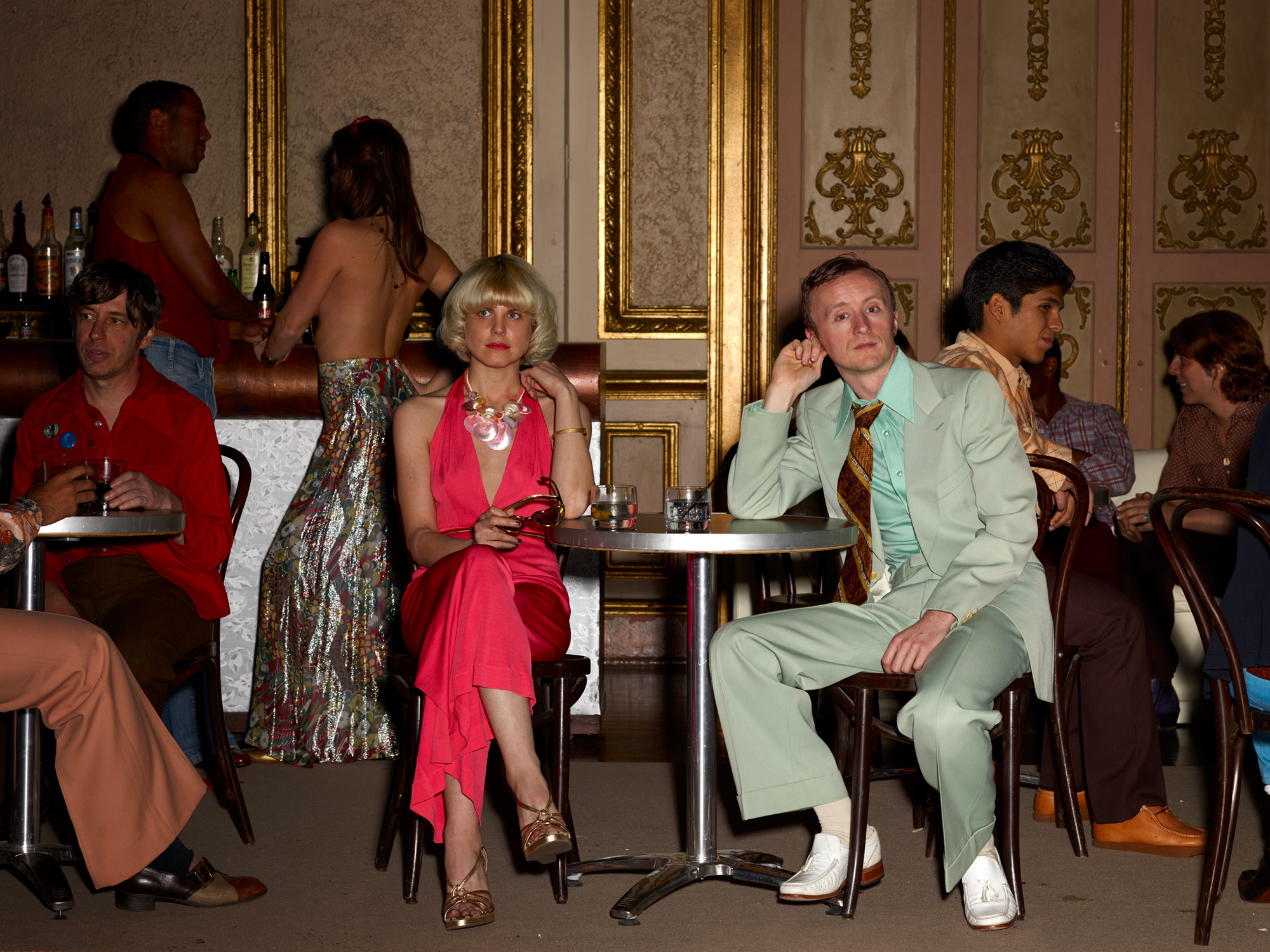
Foundation
Stan Douglas: Revealing Narratives
February 19 → May 22, 2022
The PHI Foundation will present the Canadian premiere of Douglas’s series Penn Station’s Half Century, and for the first time in Québec, the Disco Angola series
Theme: Views: Pivotal Moments
In Disco Angola (2012), Stan Douglas produced a series of eight photographs taken from the perspective of a fictional photojournalist between 1974 and 1975. Presented in four diptychs, the photographs present parallels seen in two events happening simultaneously: the emergence of the disco scene in New York and the moment between the end of Portuguese rule and the beginning of civil war in Angola. Inspired by the thematic threads connecting these two seemingly disparate events and by the figure of the fictional photojournalist, PHI Foundation educators Zoe Compton, Kim Johnson, and Prakash Krishnan developed the following screenplay that creatively contextualizes the conversations being had between disco and Angola through the construction of a modern day fictional narrative.
Two NYU students are seen crossing West 4th Street at lunch time.

Hunter: {...} and then Angelo was like, “You gotta go home man.” Anyway, the disco themed fundraiser for my exhibition is Saturday night, but I’m not sure what else to add to the event description…
Agnes: Maybe you could include some information about the roots of the disco movement; how it was first underground and mainly popular among queer and racialized communities in New York City in the mid-1970s. Before it became so commercial.
Hunter: Oh, so kind of like a 70s version of 80’s/90’s ballroom culture? Do you mean there was some kind of gentrification?
Agnes: Well, at the time, the whole country was in a recession, but New York was hit pretty bad and became a dangerous place to live. Over time, the broader public entered the disco scene looking for an escape from the disheartening situation. Eventually it became really elitist when clubs like Studio 54 began charging high cover fees and denying access to “less glamorous” partygoers.
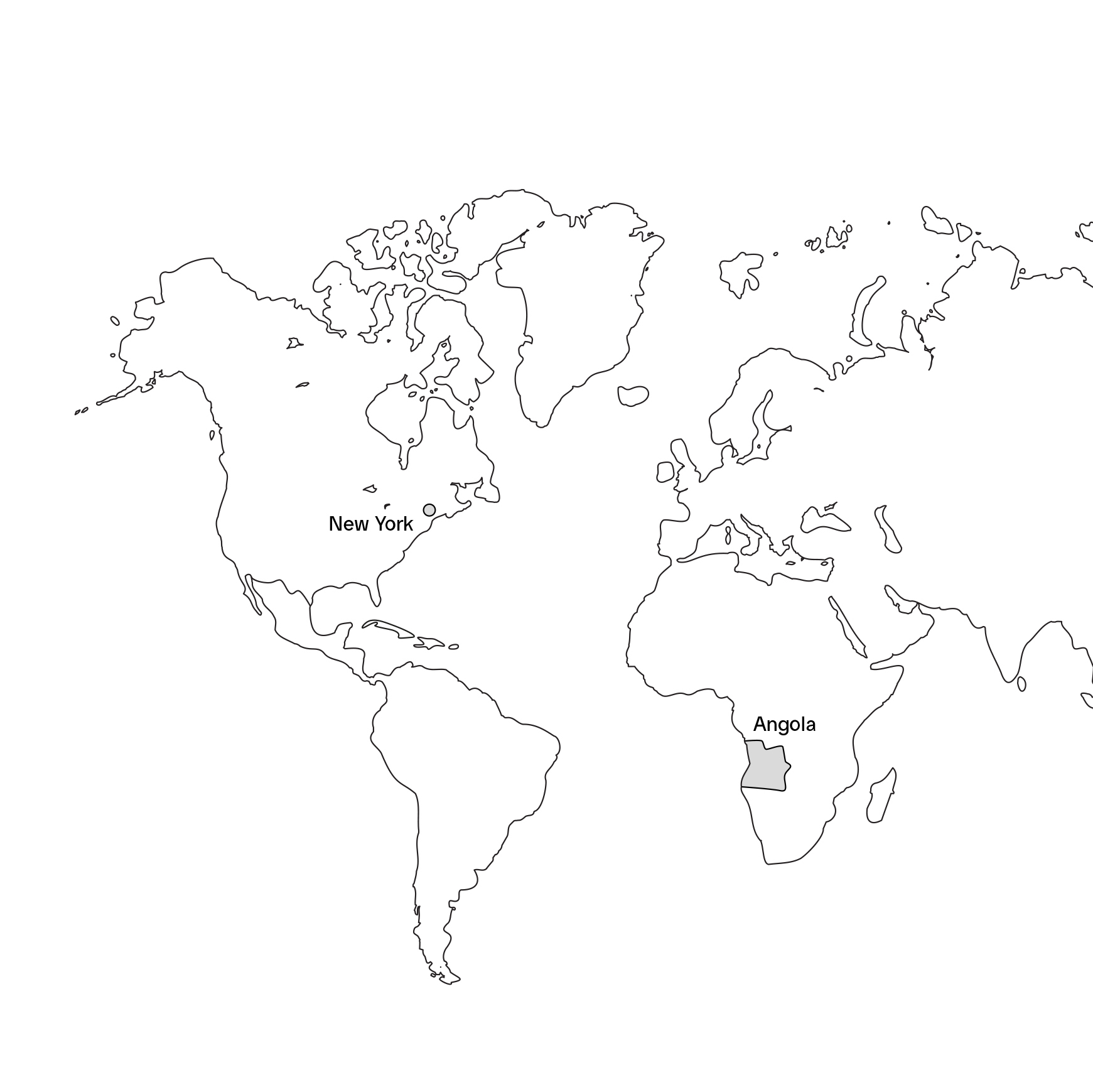
Hunter: Interesting. I really see a link to early ballroom culture and how from a “by us, for us” space it became part of mainstream culture thanks to Madonna’s Vogue and the documentary “Paris is Burning.” It's kind of similar to how popular and commercialized drag has become, considering how little it was respected not so long ago.
Agnes: Oh yeah, that’s so true. Disco, ballroom and drag have all helped contribute to a wider acceptance of the gay community.
Hunter: Totally! And from photos I found of my grandparents who were really into disco, it looked like a fun time. Speaking of, how is your martial arts training going?
Agnes: It's going well! This semester we’re learning about capoeira which is this Afro-Brazilian martial art that was carried over during the transatlantic slave trade. My teacher is really passionate, so we’re learning “Capoeira Angola” which is supposedly the “purest” version of it.
Hunter: Cool. I actually have some family from Angola who moved here for a fresh start. I’ve always wanted to go… Maybe as a graduation gift to myself.
Agnes: That sounds like it would be a really cool trip. Do you know much about that side of your family history?
Hunter: I don’t know a ton, but Angola was a Portuguese colony for about 400 years before Angolans fought and won their independence in the mid ‘70s, which is around when my family came to New York. I’m glad they did because a brutal civil war started right after they left and it lasted almost 30 years!
Agnes: That’s so interesting. It’s interesting to think that disco and the Angolan civil war were happening at the same time on opposite sides of the Atlantic…
Hunter: Yeah, well I guess this is just one example of how local events can feel connected across time and place.
After reading this screenplay, can you think of a transitional moment in history that greatly impacted the development of a society? What were its effects on politics, social movements or popular culture?
How does this linkage between New York City disco and the precipice of decolonizing Angola help us to understand the other better?
Movements: Stan Douglas is a tool designed by the PHI Foundation’s Department of Education to encourage visitors to develop and elaborate on some key concepts of the exhibition Stan Douglas: Revealing Narratives.
Authors
Zoe Compton
Zoe is an educator and project manager at the PHI Foundation for Contemporary Art. She completed a master’s degree in Art Education from Concordia University, exploring themes of settler decolonization and her ancestors’ impact on the environment in Prince Edward Island through an arts-based thesis. Her teaching philosophy is grounded in promoting environmental awareness and accessibility, which she puts to practice at the Visual Arts Centre in Westmount, the Pointe-Saint-Charles Art School, and in other community settings. Zoe also works as a Programme Assistant for the Canadian Commission for UNESCO, supporting Programme Officers and their work to advance the United Nations’ Sustainable Development Goals with various networks and partners.
Kim Johnson
Kim Johnson is an educator and project manager at the PHI Foundation. She completed a BA in Art Education at Concordia University in 2016. Kim is involved in the democratization of visual art through her educational and artistic projects in various community centres and cultural institutions in Montréal, including the Montreal Museum of Fine Arts, as a cultural mediator. As a visual artist, she draws her inspiration from human connections, the feminine and nature. Kim is particularly fond of painting and linocut.
Prakash Krishnan
Prakash Krishnan is a researcher and cultural worker in the fields of digital media, contemporary art, archives, and accessibility. He completed a master’s degree in Media Studies at Concordia University in 2021 and has penned a number of essays, articles, and reviews for international publications. Prakash is an educator and project manager at the PHI Foundation and works with various local organizations, artist-run centres, and collectives on cultural mediation programming and accessibility.

Foundation
The PHI Foundation will present the Canadian premiere of Douglas’s series Penn Station’s Half Century, and for the first time in Québec, the Disco Angola series

Foundation
The PHI Foundation will present the Canadian premiere of Douglas’s series Penn Station’s Half Century, and for the first time in Québec, the Disco Angola series
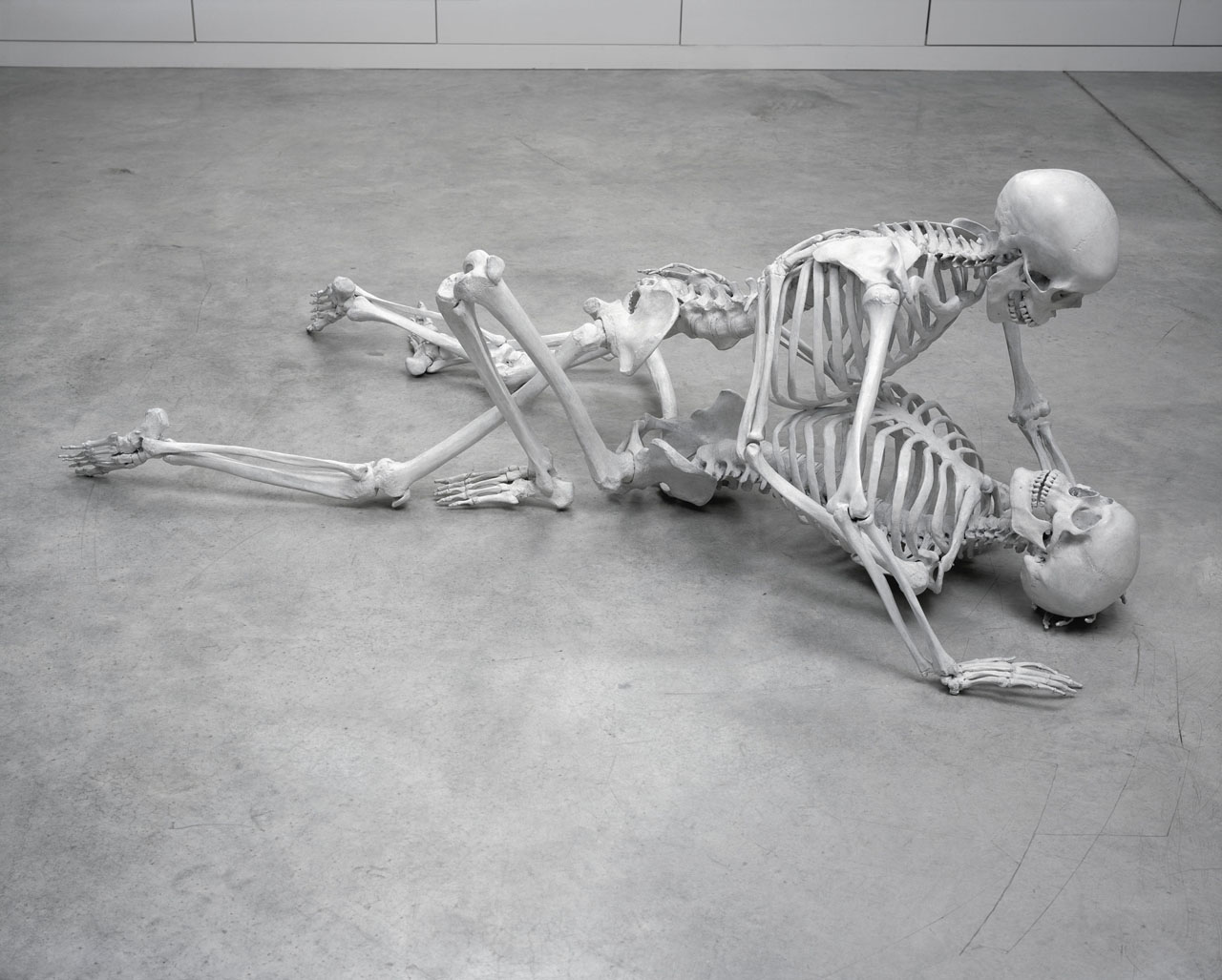
Foundation
Gathering over forty recent works, DHC/ART’s inaugural exhibition by conceptual artist Marc Quinn is the largest ever mounted in North America and the artist’s first solo show in Canada
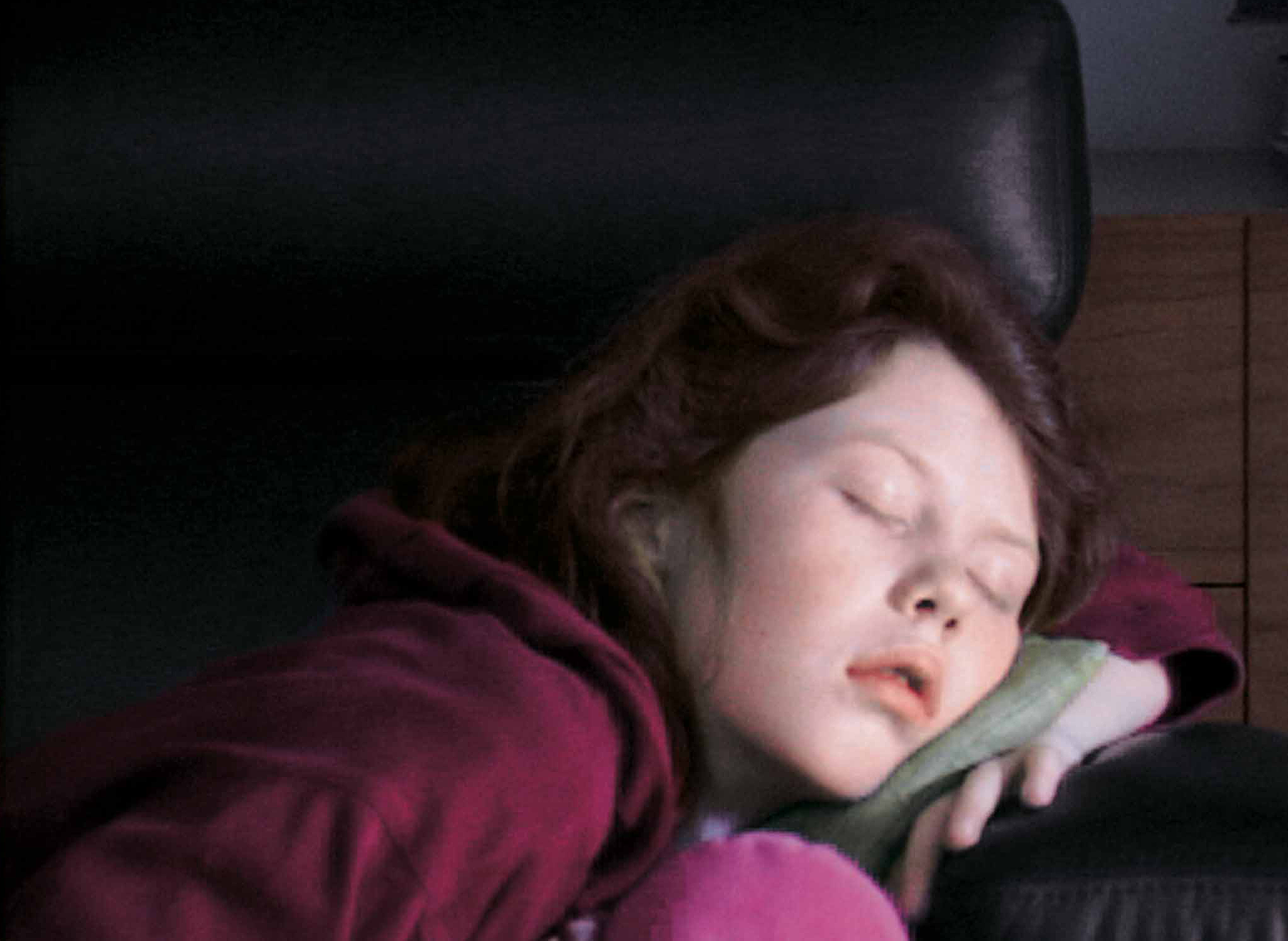
Foundation
Six artists present works that in some way critically re-stage films, media spectacles, popular culture and, in one case, private moments of daily life
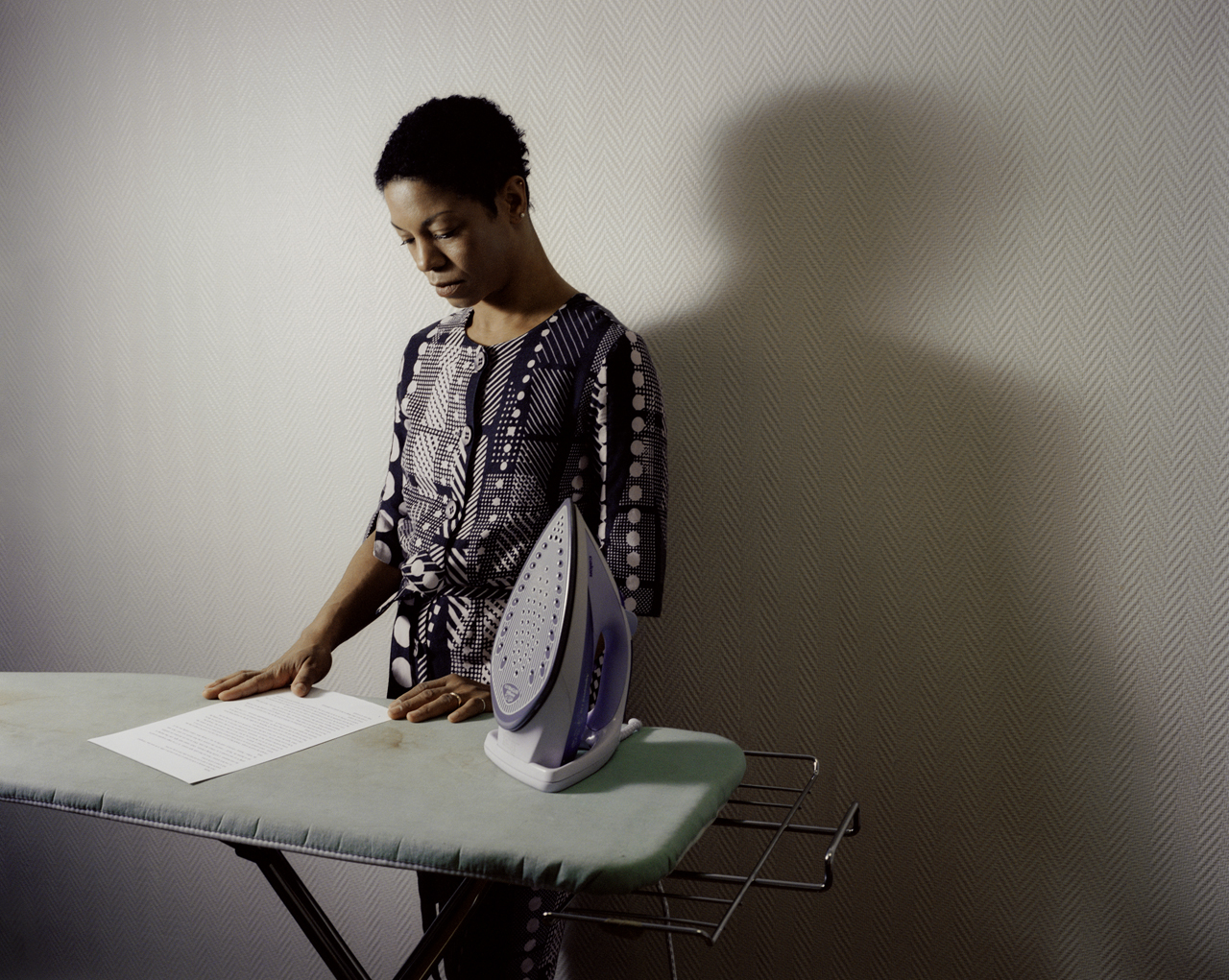
Foundation
This poetic and often touching project speaks to us all about our relation to the loved one
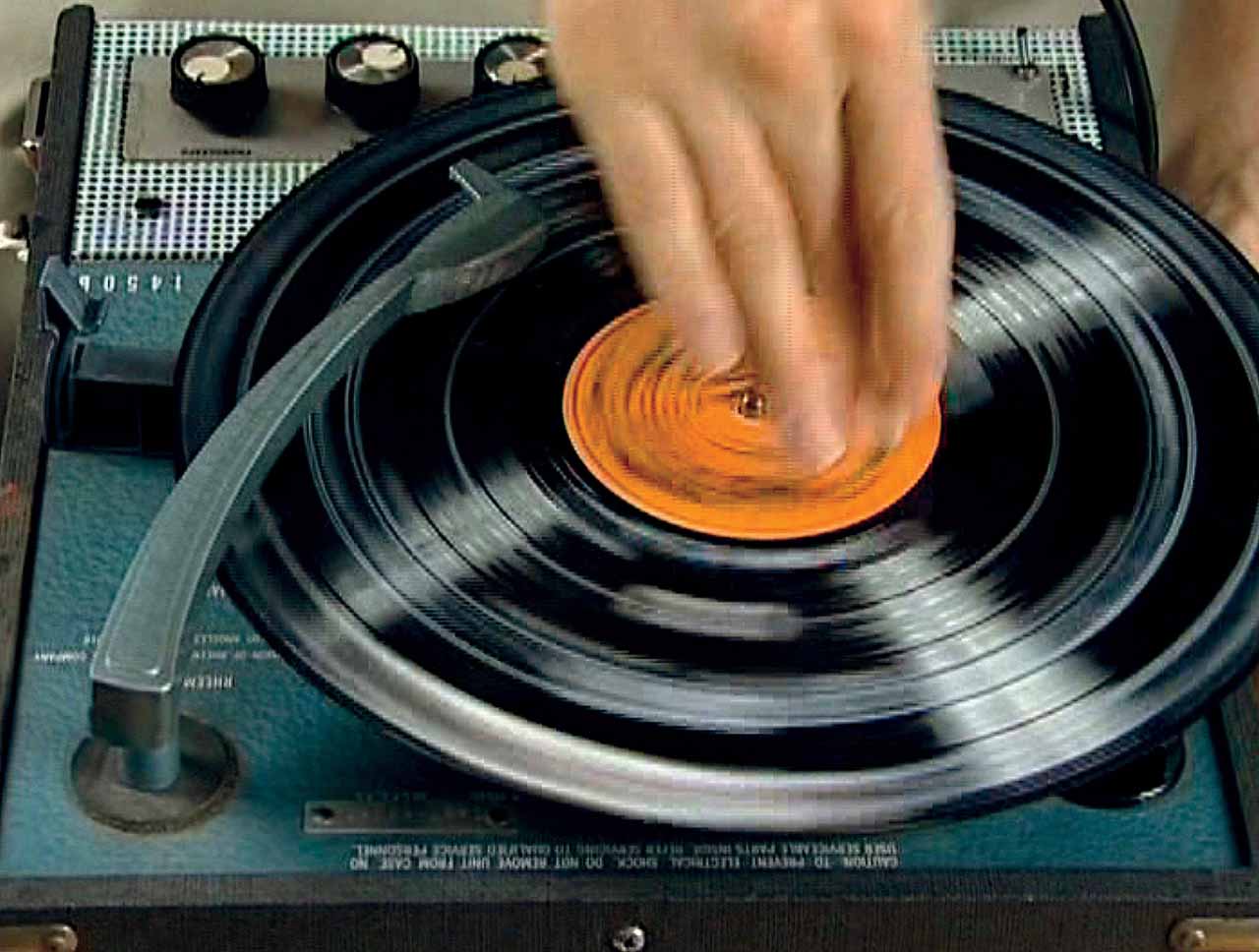
Foundation
DHC/ART Foundation for Contemporary Art is pleased to present the North American premiere of Christian Marclay’s Replay, a major exhibition gathering works in video by the internationally acclaimed artist
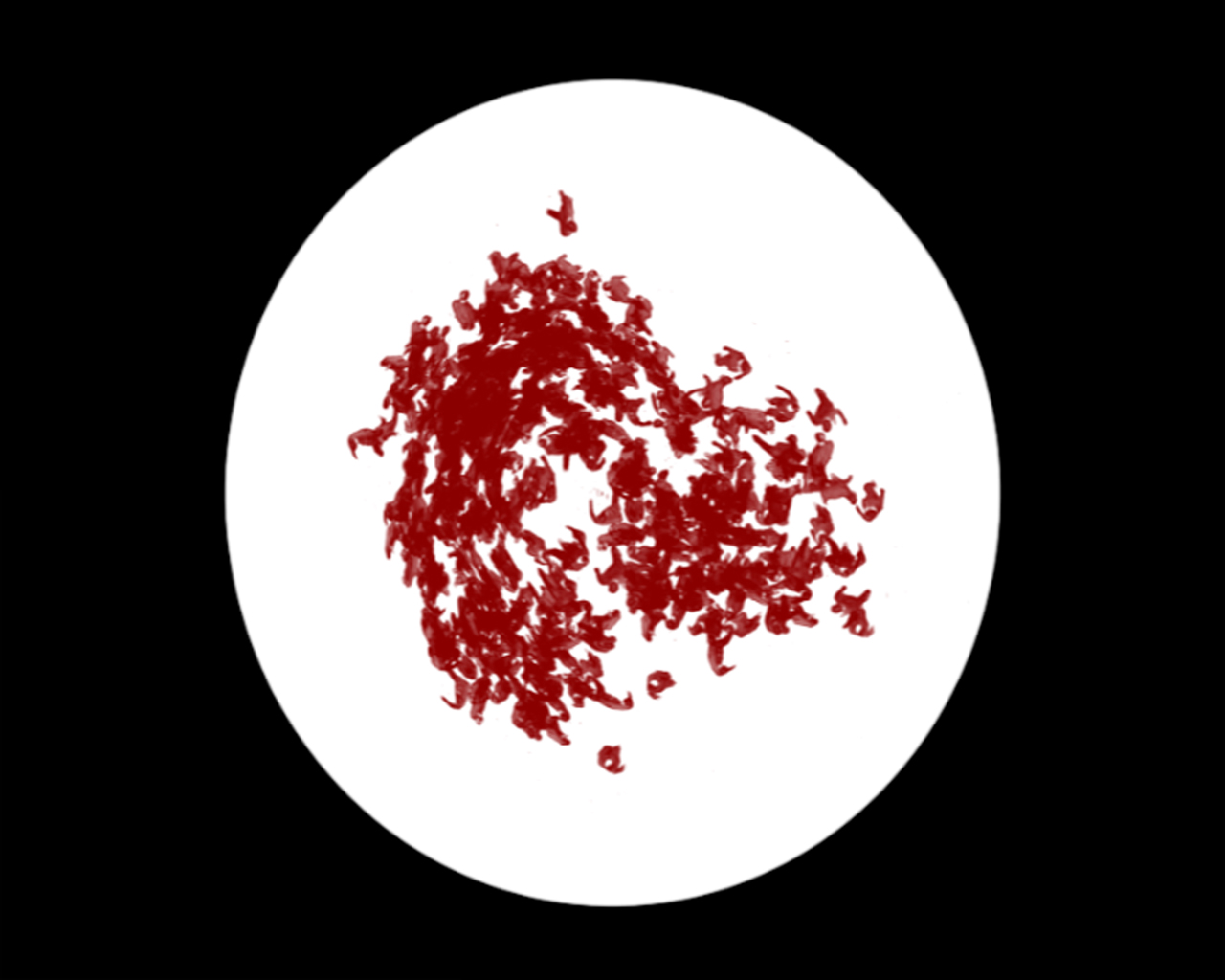
Foundation
DHC/ART is pleased to present Particles of Reality, the first solo exhibition in Canada of the celebrated Israeli artist Michal Rovner, who divides her time between New York City and a farm in Israel
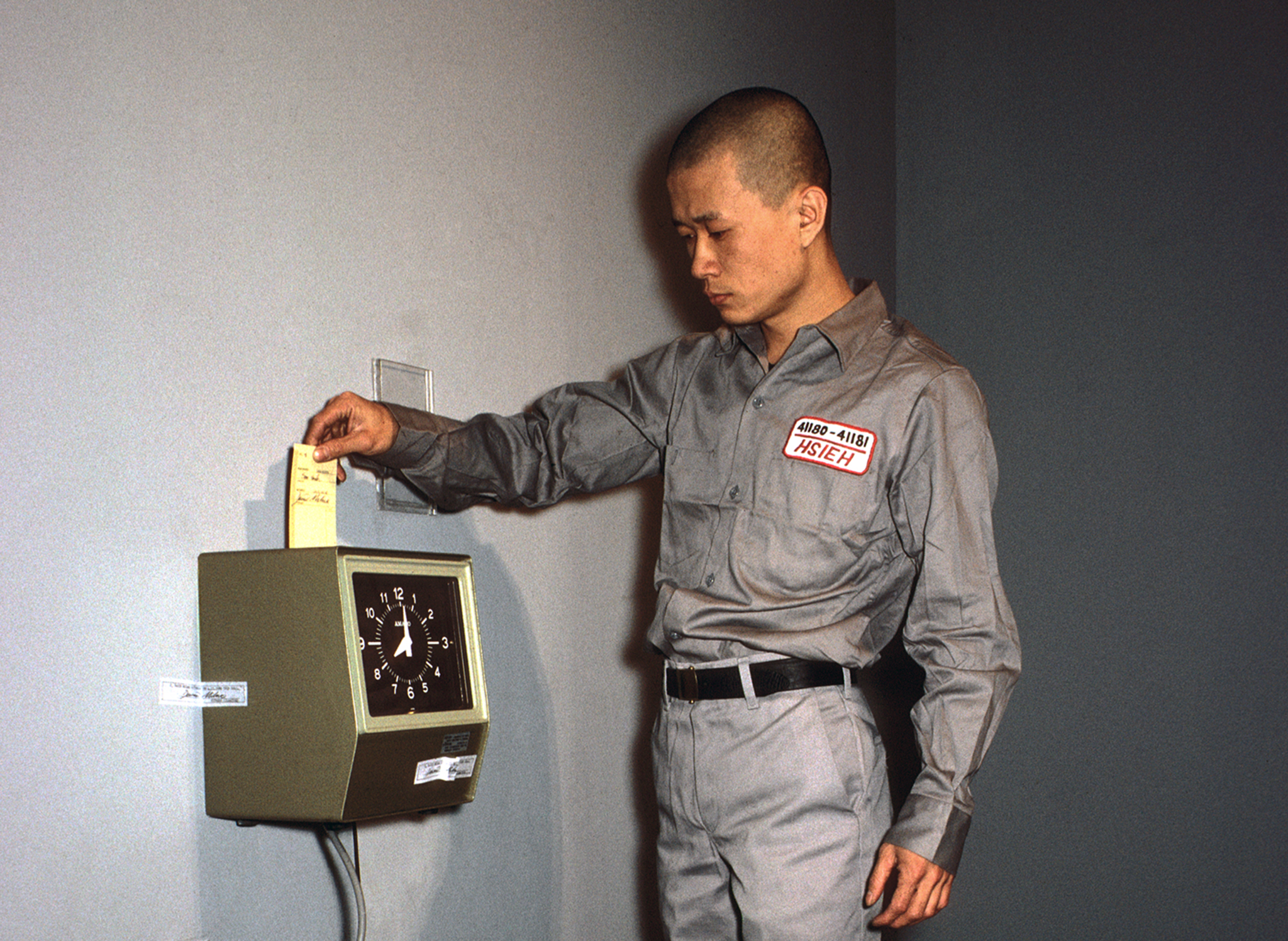
Foundation
The inaugural DHC Session exhibition, Living Time, brings together selected documentation of renowned Taiwanese-American performance artist Tehching Hsieh’s One Year Performances and the films of young Dutch artist, Guido van der Werve
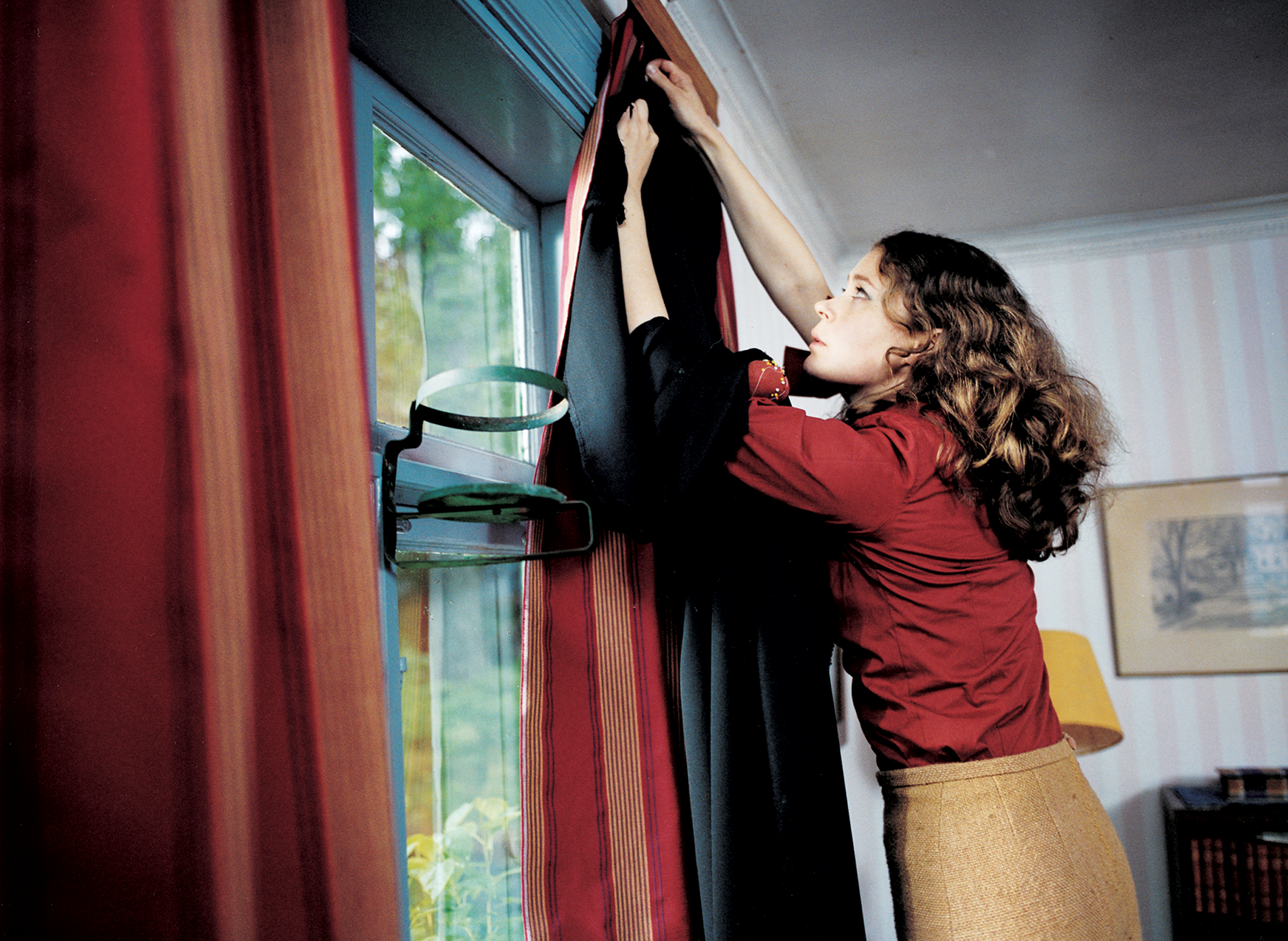
Foundation
Eija-Liisa Ahtila’s film installations experiment with narrative storytelling, creating extraordinary tales out of ordinary human experiences
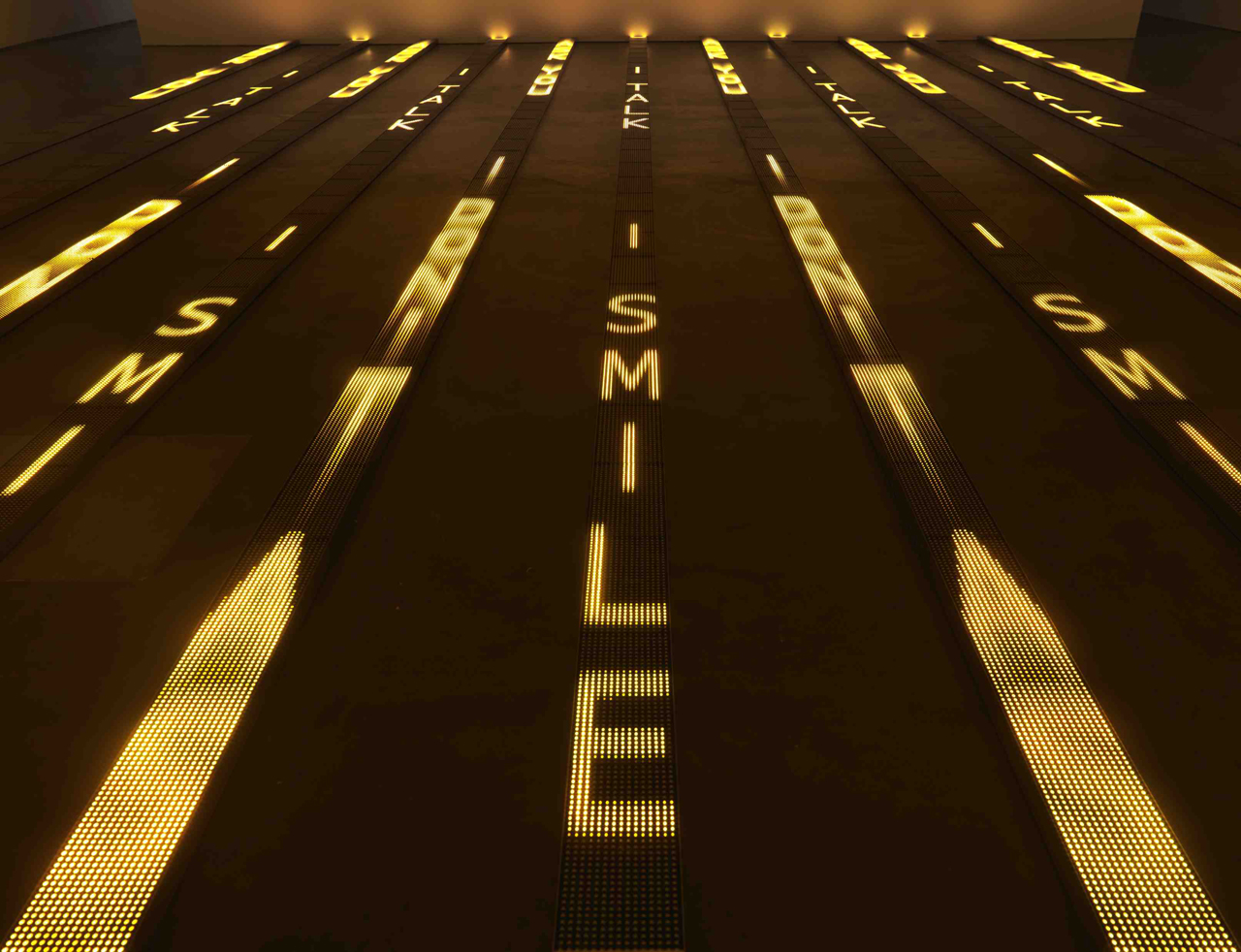
Foundation
For more than thirty years, Jenny Holzer’s work has paired text and installation to examine personal and social realities